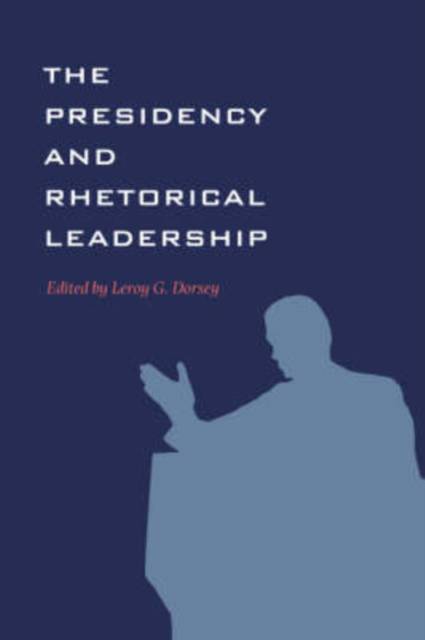
Door een staking bij bpost kan je online bestelling op dit moment iets langer onderweg zijn dan voorzien. Dringend iets nodig? Onze winkels ontvangen jou met open armen!
- Afhalen na 1 uur in een winkel met voorraad
- Gratis thuislevering in België vanaf € 30
- Ruim aanbod met 7 miljoen producten
Door een staking bij bpost kan je online bestelling op dit moment iets langer onderweg zijn dan voorzien. Dringend iets nodig? Onze winkels ontvangen jou met open armen!
- Afhalen na 1 uur in een winkel met voorraad
- Gratis thuislevering in België vanaf € 30
- Ruim aanbod met 7 miljoen producten
Zoeken
The Presidency and Rhetorical Leadership
Volume 6
€ 36,45
+ 72 punten
Omschrijving
Successful presidential leadership depends upon words as well as deeds. In this multifaceted look at rhetorical leadership, twelve leading scholars in three different disciplines provide in-depth studies of how words have served or disserved American presidents.At the heart of rhetorical leadership lies the classical concept of prudence, practical wisdom that combines good sense with good character. From their disparate treatments of a range of presidencies, an underlying agreement emerges among the historians, political scientists, and communication scholars included in the volume. To be effective, they find, presidents must be able to articulate the common good in a particular situation and they must be credible on the basis of their own character. Who they are and what they can do are thus twin pillars of successful rhetorical leadership.
Leroy G. Dorsey introduces these themes, and David Zarefsky picks them up in looking at the historical development of rhetorical leadership within the office of the presidency. Each succeeding chapter then examines the rhetorical leadership of a particular president, often within the context of a specific incident or challenge that marked his term in office. Chapters dealing with George Washington, John Adams, Thomas Jefferson, Theodore Roosevelt, Woodrow Wilson, Franklin Roosevelt, Dwight Eisenhower, Ronald Reagan, and Bill Clinton offer the specifics for a clearer understanding of how rhetoric serves leadership in the American presidency. This book provides an indispensable addition to the literature on the presidency and in leadership studies.
Leroy G. Dorsey introduces these themes, and David Zarefsky picks them up in looking at the historical development of rhetorical leadership within the office of the presidency. Each succeeding chapter then examines the rhetorical leadership of a particular president, often within the context of a specific incident or challenge that marked his term in office. Chapters dealing with George Washington, John Adams, Thomas Jefferson, Theodore Roosevelt, Woodrow Wilson, Franklin Roosevelt, Dwight Eisenhower, Ronald Reagan, and Bill Clinton offer the specifics for a clearer understanding of how rhetoric serves leadership in the American presidency. This book provides an indispensable addition to the literature on the presidency and in leadership studies.
Specificaties
Betrokkenen
- Uitgeverij:
Inhoud
- Aantal bladzijden:
- 280
- Taal:
- Engels
- Reeks:
- Reeksnummer:
- nr. 6
Eigenschappen
- Productcode (EAN):
- 9781603440561
- Verschijningsdatum:
- 26/03/2008
- Uitvoering:
- Paperback
- Formaat:
- Trade paperback (VS)
- Afmetingen:
- 152 mm x 229 mm
- Gewicht:
- 412 g

Alleen bij Standaard Boekhandel
+ 72 punten op je klantenkaart van Standaard Boekhandel
Beoordelingen
We publiceren alleen reviews die voldoen aan de voorwaarden voor reviews. Bekijk onze voorwaarden voor reviews.










